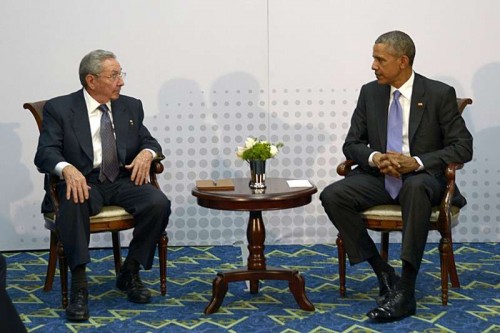
Cuba was officially removed from the US government’s list of state sponsors of terrorism, the State Department said.
“The 45-day congressional pre-notification period has expired, and the secretary of state has made the final decision to rescind Cuba’s designation as a state sponsor of terrorism, effective today, May 29, 2015,” State Department spokesperson Jeff Rathke said in a statement.
The Obama administration informed Congress on April 14 that it planned to remove Cuba from the list after 33 years.
Congress then had 45 days to pass a bill blocking the move.
“The rescission of Cuba’s designation as a state sponsor of terrorism reflects our assessment that Cuba meets the statutory criteria for rescission,” Rathke said, referring to the findings of a review initiated last December on the order of President Barack Obama.
“While the United States has significant concerns and disagreements with a wide range of Cuba’s policies and actions, these fall outside the criteria relevant to the rescission of a state sponsor of terrorism designation,” the spokesperson said.
Obama announced his decision to remove Cuba from the list following a historic meeting with Cuban President Raul Castro during April’s Summit of the Americas in Panama.
The corresponding report to Congress included a “certification that Cuba has not provided any support for international terrorism during the previous six-months; and that Cuba has provided assurances that it will not support acts of international terrorism in the future,” Rathke said on Friday.
Washington’s stated reason for keeping Cuba on the list was that the island’s government provided haven to members of Colombia’s FARC guerrillas, the Basque terrorist group ETA and a number of US fugitives.
Cuba has long demanded to be removed from the blacklist and the review Obama ordered in December was part of the accord he and Castro announced for the normalisation of bilateral relations after a breach of more than 50 years.
In US-Cuban normalisation talks over the last five months, Havana pointed to its presence on the terror list as a major obstacle to the re-opening of embassies.
The most recent round of discussions ended last Friday in Washington with the message that the two sides are “much closer” to agreement on the re-opening of embassies in the respective capitals.